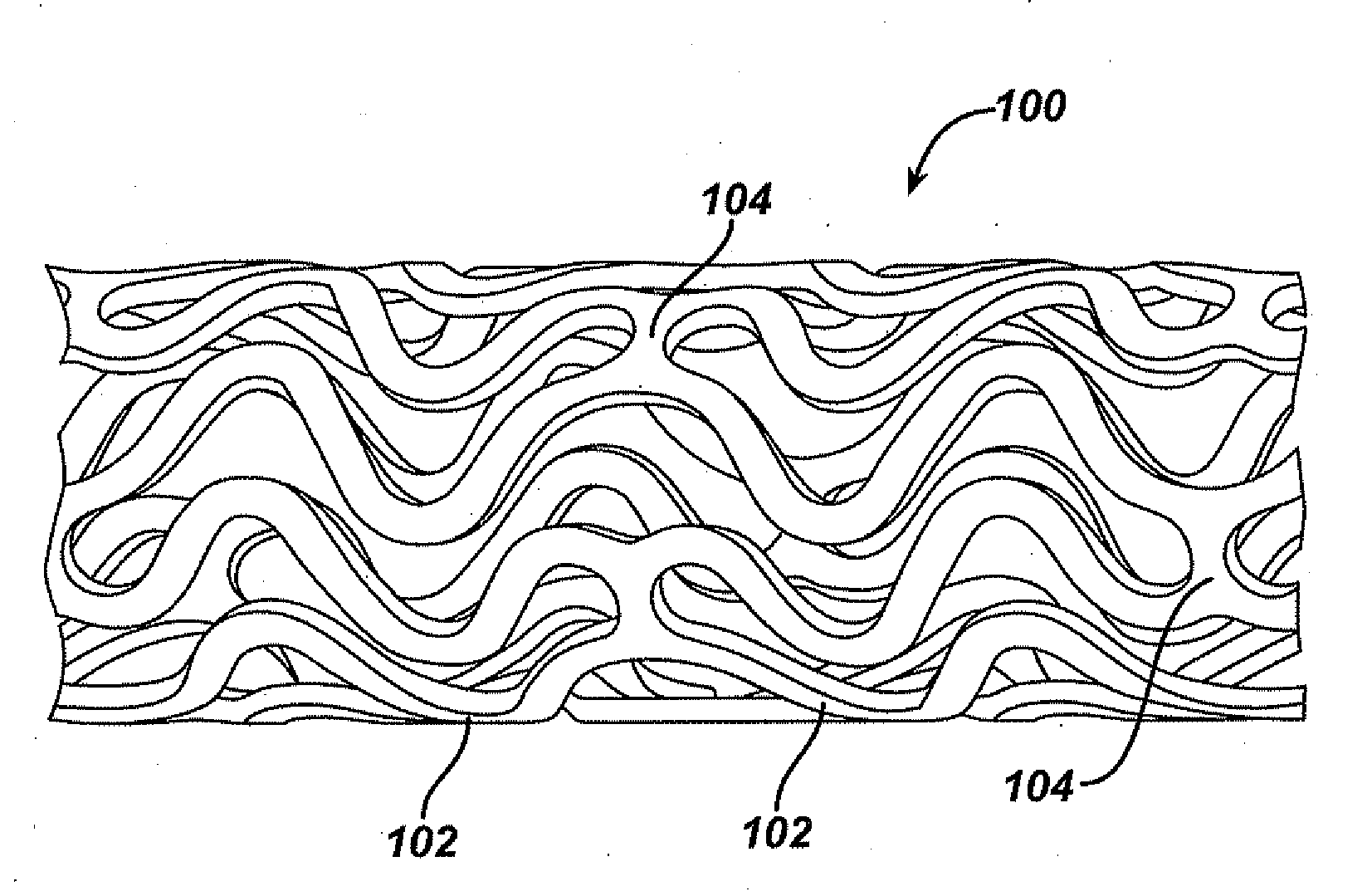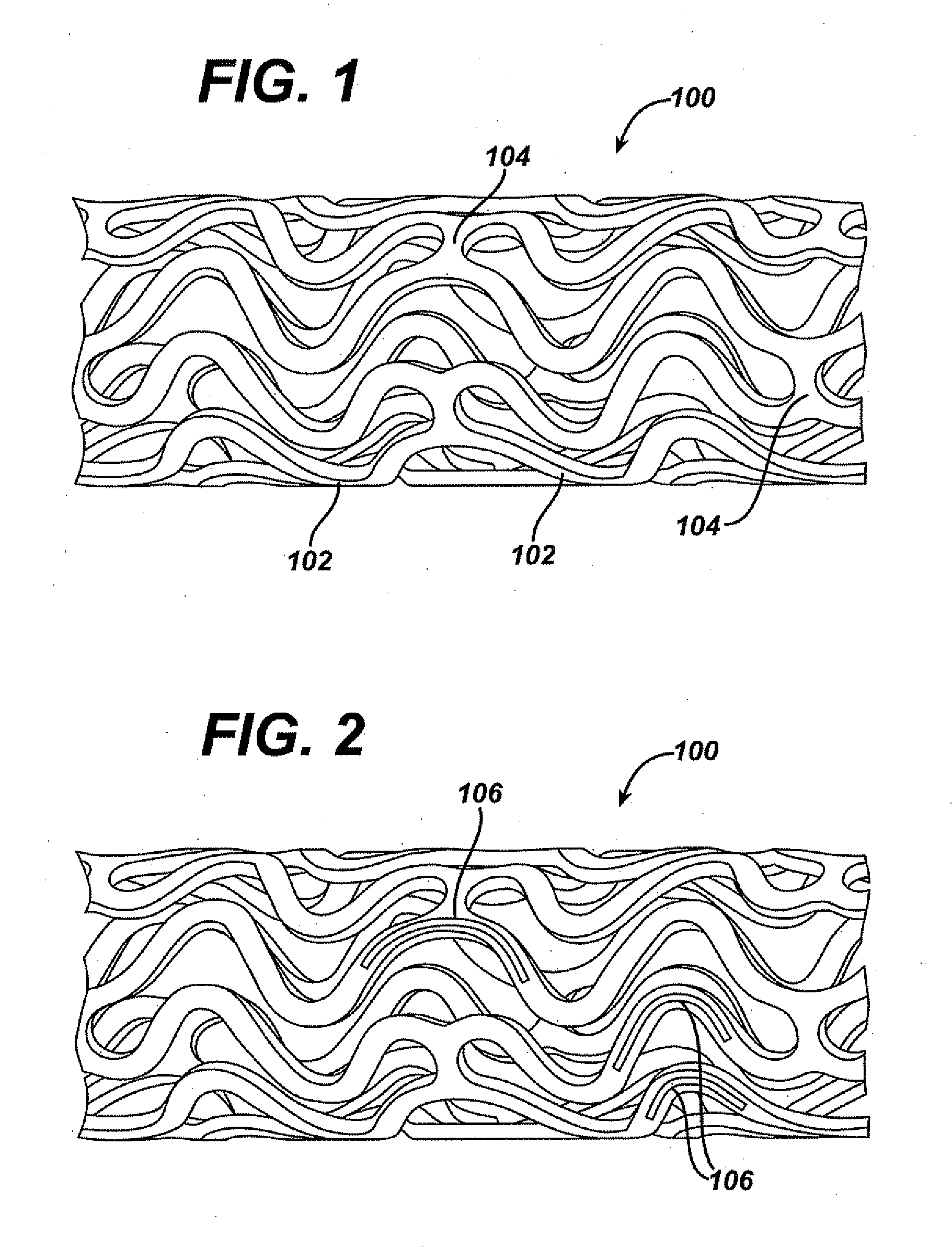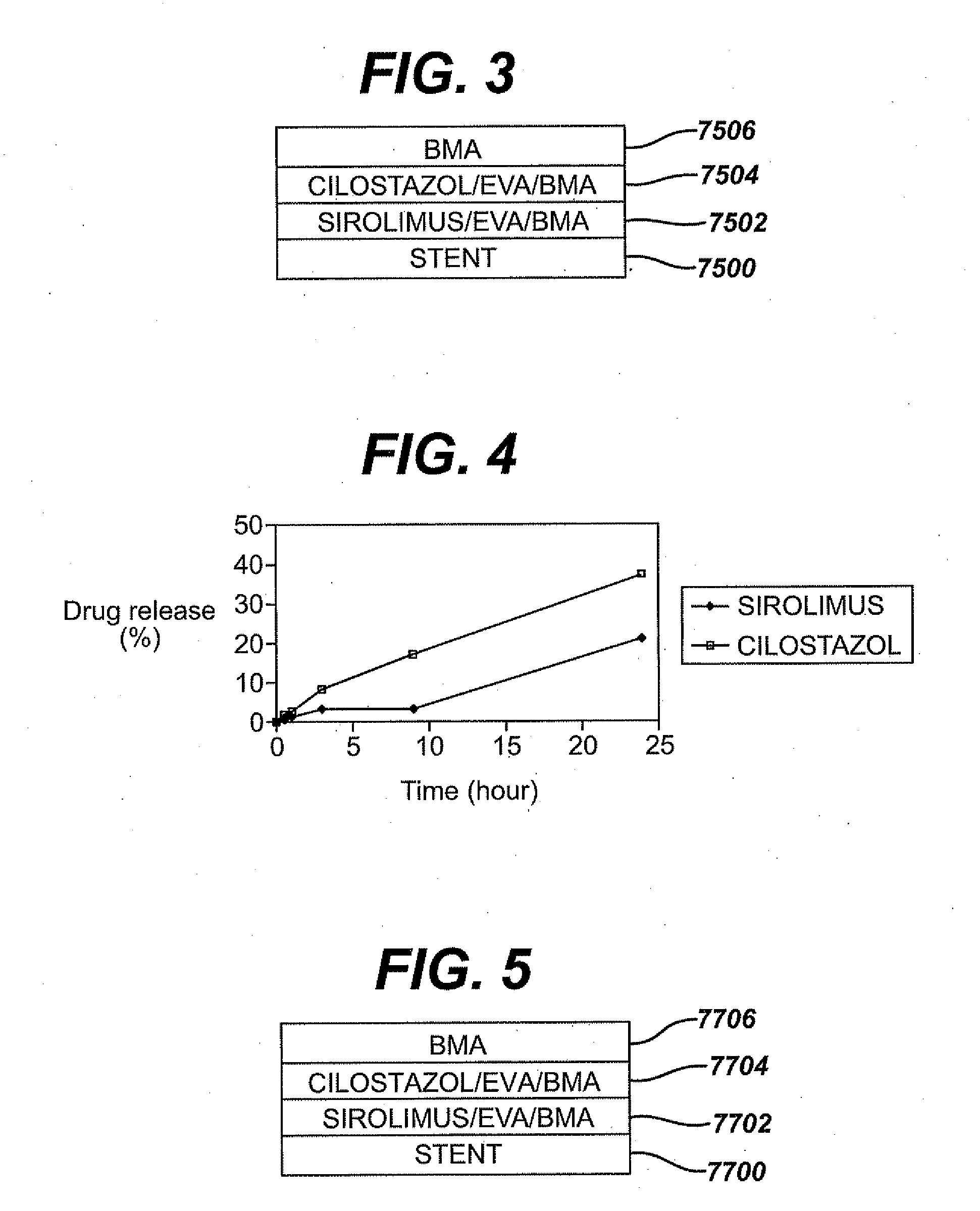Rapamycin reservoir eluting stent
a reservoir eluting, rapamycin technology, applied in the direction of prosthesis, blood vessels, drug compositions, etc., can solve the problems of ischemic injury, stroke or myocardial infarction, angioplasty is abrupt closure of the vessel, and chronic pain, so as to minimize the elution of sirolimus, maintain vessel patency, and less brittle
- Summary
- Abstract
- Description
- Claims
- Application Information
AI Technical Summary
Benefits of technology
Problems solved by technology
Method used
Image
Examples
Embodiment Construction
[0054]The drug / drug combinations and delivery devices of the present invention may be utilized to effectively prevent and treat vascular disease, and in particular, vascular disease caused by injury. Various medical treatment devices utilized in the treatment of vascular disease may ultimately induce further complications. For example, balloon angioplasty is a procedure utilized to increase blood flow through an artery and is the predominant treatment for coronary vessel stenosis. However, as stated above, the procedure typically causes a certain degree of damage to the vessel wall, thereby potentially exacerbating the problem at a point later in time. Although other procedures and diseases may cause similar injury, exemplary embodiments of the present invention will be described with respect to the treatment of restenosis and related complications following percutaneous transluminal coronary angioplasty and other similar arterial / venous procedures, including the joining of arteries...
PUM
| Property | Measurement | Unit |
|---|---|---|
| time | aaaaa | aaaaa |
| total mass | aaaaa | aaaaa |
| total mass | aaaaa | aaaaa |
Abstract
Description
Claims
Application Information
 Login to View More
Login to View More - R&D
- Intellectual Property
- Life Sciences
- Materials
- Tech Scout
- Unparalleled Data Quality
- Higher Quality Content
- 60% Fewer Hallucinations
Browse by: Latest US Patents, China's latest patents, Technical Efficacy Thesaurus, Application Domain, Technology Topic, Popular Technical Reports.
© 2025 PatSnap. All rights reserved.Legal|Privacy policy|Modern Slavery Act Transparency Statement|Sitemap|About US| Contact US: help@patsnap.com



